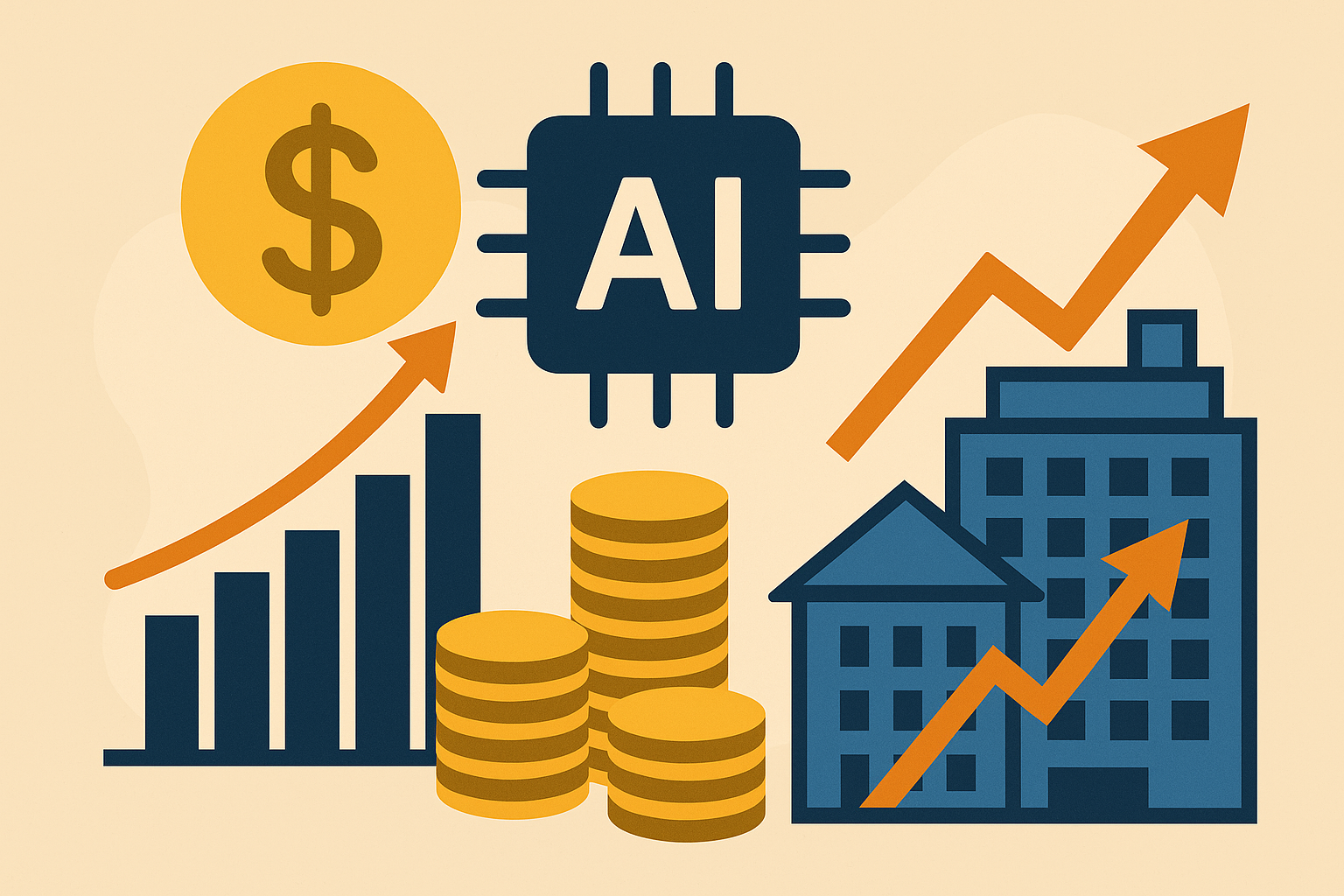Just a year ago, many investors were wondering whether artificial intelligence (AI) was a long-term disruptor or just another overhyped tech trend. Today, those doubts are fading fast. According to Morgan Stanley’s July 2025 AI Adopter Survey, the numbers speak for themselves: companies that have embraced AI—especially in financial services, consumer sectors, and real estate—are now reaping tangible performance advantages. And the gap is widening.
In an environment where cost efficiency, margin resilience, and scalable growth are paramount, AI has emerged as a competitive moat. Investors ignoring this trend do so at their own risk.
Real Numbers, Real Returns
Morgan Stanley’s latest research, widely circulated among institutional clients this week, reveals a striking shift in AI deployment across multiple sectors. In the financial services industry, AI adoption rose from 48% last year to 71% in 2025. Consumer goods and real estate firms aren’t far behind, with significant uptake driving both top-line growth and margin expansion.
“AI has moved beyond pilot projects,” said Morgan Stanley analysts in their survey summary. “We’re now seeing structural integration—particularly in risk management, underwriting, dynamic pricing, and customer retention strategies.”
In fact, the report highlights that companies actively deploying AI at scale are materially outperforming peers in both revenue growth and shareholder return. The outperformance is especially strong in financials, where AI is automating credit assessments, improving fraud detection, and personalizing wealth management at scale.
Why This Matters for Investors
The implications are twofold. First, companies that lag in AI implementation risk becoming operationally inefficient, leading to lower margins and market share erosion. Second, AI adoption is becoming a forward-looking indicator of management quality and digital maturity—two factors increasingly priced in by the market.
This trend has already been reflected in Q2 earnings. Major U.S. banks such as JPMorgan and Bank of America noted double-digit cost savings attributed to AI-assisted operations. Consumer giants like Unilever and Walmart have also leaned heavily into predictive analytics and supply chain optimization tools powered by machine learning.
Moreover, real estate investment trusts (REITs) are adopting AI for energy optimization, predictive maintenance, and tenant behavior analysis—improving both occupancy rates and operating efficiencies.
Future Trends to Watch
The investment landscape is shifting quickly:
- AI + Financials: Expect further innovation in credit modeling, claims processing, and robo-advisory platforms. Fintech M&A activity is likely to accelerate.
- AI + Consumer Staples: From dynamic pricing to customer journey mapping, machine learning is becoming a baseline, not a luxury.
- AI + REITs: Smart buildings and AI-powered asset management tools are turning traditional property plays into tech-enabled income generators.
According to Bloomberg Intelligence, AI-linked capex among S&P 500 firms is expected to grow 24% YoY through 2026. Alphabet’s recent $85 billion infrastructure expansion announcement—largely AI-driven—is just the beginning. The next frontier is real-time data monetization, where insights generated by AI are directly sold or licensed to partners.
Key Investment Insight
Investors should overweight companies that are clear AI adopters—particularly in financials (banks, insurance, asset management), consumer staples (CPG leaders, big-box retailers), and REITs focused on smart infrastructure. Look for earnings calls and SEC filings that detail AI strategy, capital expenditures, and operational KPIs tied to automation.
Equally important, steer clear of firms that treat AI as a side experiment or haven’t addressed digital transformation in their investor communications. The performance gap will only widen as AI accelerates cost advantages and data-driven agility.
ETFs like BOTZ, ROBO, or ARKQ provide diversified exposure to companies leading in robotics and AI. For stock pickers, companies like ServiceNow, Palantir, and BlackRock have demonstrated robust AI integration across core operations.
For investors aiming to stay ahead of the curve, the message is clear: AI is not just a tech story—it’s a market imperative.
Stay tuned with MoneyNews.Today for daily insight on the strategies, signals, and sectors that are shaping tomorrow’s portfolio performance.





